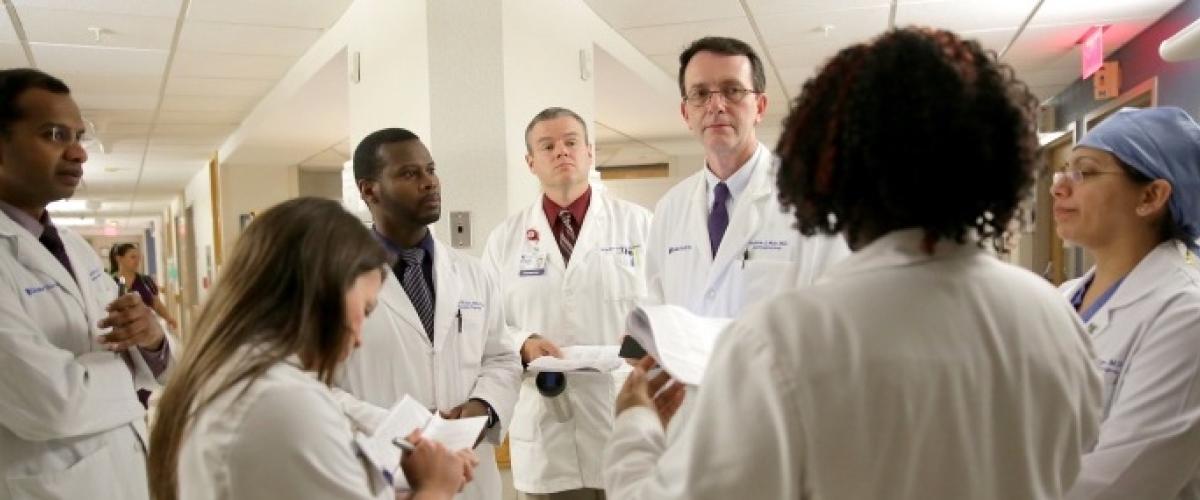
Learn more about our education and training opportunities.
Gastroenterology Fellowship Program
The Duke Division of Gastroenterology offers a three-year program of clinical and laboratory training in gastroenterology.
We seek applicants for our fellowship program who share our desire to provide superb care to patients while advancing understanding through research into digestive and liver diseases.
Fellows have the opportunity to pursue specific clinical and/or research interests and have access to comprehensive training in all aspects of contemporary gastroenterology and hepatology
Gastroenterology Research Training Program
The Duke Division of Gastroenterology offers post-doctoral research training to physicians and scientists. The Research Training Program brings together MD fellows from our clinical Gastroenterology Fellowship and PhD post-doctoral fellows from the laboratories and research programs of our faculty. Fellows must be accepted into the Gastroenterology Fellowship or the research program of a Division of Gastroenterology faculty member in order to participate in the Gastroenterology Research Training Program. The program co-directors are Dr. Andrew Muir and Dr. Rodger Liddle
Advanced Endoscopy Training Program
The Duke Division of Gastroenterology’s Advanced Endoscopy Training Program is a one-year program devoted to the clinical and research training of an advanced fellow in endoscopic retrograde cholangioscopy (ERCP), endoscopic ultrasound (EUS), advanced polypectomy techniques and endoluminal stenting.
Advanced/Transplant Hepatology Fellowship
The Division of Gastroenterology offers a one-year advanced training program that prepares physicians and scientists for a career in academic advanced gastroenterology and transplant hepatology.
Fellows have access to comprehensive training in transplant hepatology, transplant infectious diseases, hepatopathology and interventional radiology, as well as access to research training, advanced clinical skills and training in medical education